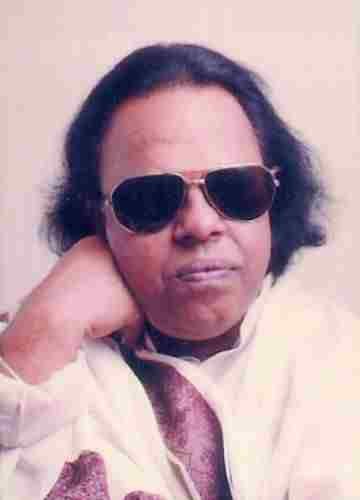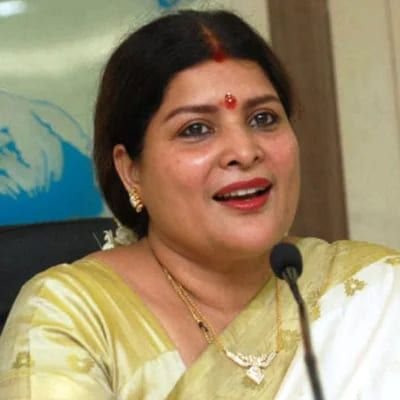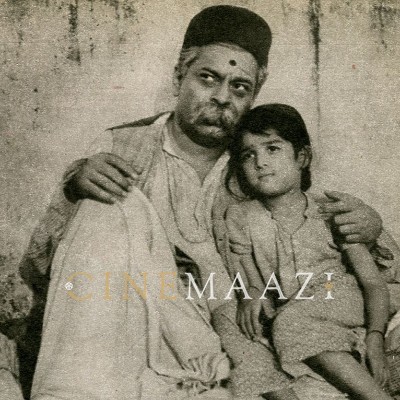Mahendra Kapoor

Subscribe to read full article
This section is for paid subscribers only. Our subscription is only $37/- for one full year.
You get unlimited access to all paid section and features on the website with this subscription.
Not ready for a full subscription?
You can access this article for $2 , and have it saved to your account for one year.
- Born: 09/01/1934 (Amritsar)
- Died: 27/09/2008 (Bombay)
- Primary Cinema: Hindi
- Spouse: Pravinlata Kapoor
- Children: Ruhan Kapoor
Mahendra Kapoor’s journey to becoming a playback singer involved many twists and hurdles. He eventually found his way, and ended up lending his melodious voice to a number of famous actors.
Mahendra Kapoor was born in Amritsar on January 9 1934. Only a month after his birth, his parents shifted to Mumbai, where he finished his schooling and further studies. Mahendra discovered his love for music at a very early stage of his life. When he was only seven or eight years old, he started learning music from Bharat Vyas’ younger brother B.M. Vyas, honed by a skilled teacher, his interest soon gave way to passion. Once he discovered Mohammed Rafi’s voice in Yahan badla wafa ka bewafa ike siva kya hai from Jugnu (1947), he decided to meet him at any cost. When he finally got the chance to, his idol Rafi asked him to sing the song Woh raatein kya bhool gaye ho janam janam ke saathi. Rafi was so impressed by the young man’s talent that he took him on as a disciple.
Later, Mahendra Kapoor met the composer V Balsara through the playback singer Dhan Indorewala. V. Balsara showed an immediate interest in him, first making him a part of his orchestra, and then giving him a break as a playback singer. Mahendra Kapoor made his debut with the duet Kisi ke zulm ki tasveer hai mazdoor ki basti with Dhan Indorewala in the film Madmast (1953). He also sang the qawwali Unhe dekhe toh woh munh pher…hume yaankhein dikhaate hain in the same film with S D Batish. He sang his first solo song Tera dar ki bhikh mangi hai data duniya saari in Diwali Ki Raat (1956) by the composer Snehal Bhatkar.
At the beginning of his career, Mahendra Kapoor faced a great deal of difficulty. After he had already sung a few parts of Ek tara jo rune nikaala hai diwala and a duet O bedardi kaane kenaa kar bahaane with Sabita Chatterji, he found that his work was not finding much attention. He lost faith in the film industry when he went to Filmistan Studio to sing for the film Heer (1956), but his version of the song was snubbed and he has turned away with no remuneration. In 1957, one of his friends convinced him to participate in the All India Murphy Metro Competition. The panel of judges included illustrious names like Naushad, C Ramachandra, Madan Mohan, Vasant Desai and Anil Biswas, Here too, he won every round, but could not win the contest when someone raised an objection regarding his status as an established professional singer. A suit was filed against him, and he was given a clean chit by the court only with the help of Kesri Mistry. This meant that he was the winner of the competition, and he was provided with the opportunity to work with each panellist for at least one song. C. Ramachandra was the first of them to sign him on, asking him to sing Aadha hai chandrama raat aadhi for Navrang (1959). Later, he sang for Naushad with the song Chaand chhupa aur tare doobe for Sohni Mahiwal (1958). His stellar performance for N. Dutta’s composition Tere pyaar kaaasra chahta hoon in Yash Chopra’s debut film Dhool Ka Phool (1959) earned him a permanent position in B.R. Films.
Mahendra Kapoor's discography boasts many hits, among which songs like Chalo ek baar phir se ajnabi ban jaayen hum dono, Hey neele gaganke tale and Aur nahi bas aur nahi earned him three Filmfare awards. And the evergreen song from the golden age of Indian cinema, Mere desh ki dharti sona ugle from the film Upkar (1967) won him the National Award for Best Singer. Later in his life, he was also honoured with the Lata Mangeshkar Award by Madhya Pradesh government for the year 2001-02.
Mahendra Kapoor died on 27 September 2008 at the age of 74 in Mumbai, leaving behind a tuneful legacy that many would cherish for years to come.












.jpg)



